After choosing my courses for the fall semester along with the rest of the freshman class just under a month ago, I was directed to a table in Steele Hall to set up my very first meeting with the Career Planning & Resources office. With my freshly curated course schedule planned out, I set up an appointment for Monday, September 17th, and had absolutely no idea what to expect. After all, I have not even officially declared my major as of now. Much less do I know what I want “to be when I grow up,” even though it’s a question that’s been posed to me since kindergarten. The only thing I do know is that I like literature and that I want to read lots and lots during my career here at Scripps.
A few days before my appointment I received an email from Handshake, reminding me of my upcoming meeting. A newbie to the website, I was excited to feel like a professional and a member of an online platform that has, more and more each day here at Scripps, become a crucial element of professionalism in Claremont.
As I entered the doors to the CP&R office from Seal Court, I was nervous. I had finally gotten here, to Scripps College, from four rigorous years of high school all the way across the country where I had been constantly wondering where I would end up once I’d graduated. Yet, there I was once more, at the start of another four years, feeling like I had to worry all over again about life after graduation.
As I sat in the CP&R library waiting for my appointment, my legs couldn’t help but sway back and forth like a restless little kids. So, I reminded myself to be “professional.” I sat there considering what that word had meant to me for the past 18 years of my life. Well, at that moment it most obviously meant punctuality, hence why I was early for my meeting and fidgeting in my chair. Professionalism means a shared respect for one another and upholding the guidelines of a working community. Culturally, professionalism means a firm handshake.
Just as I was musing these ideas, I heard my name, followed by a question mark. I stood up to meet the career counselor I had been scheduled with to talk. I wanted to start off professionally, so I reached out my hand, hoping to make a good first impression with a confident handshake.
As I walked into the career counselor’s office I began to feel more at ease. The career counselor went over some basics of Handshake with me. But what was most helpful was simply seeing the extensive list of careers that Handshake had listed. There is more to do with a degree in the humanities than law school after all! Although, I do have to admit, I was a bit of a traditionalist and checked off an interest in law school following college.
As the meeting progressed I realized something that perhaps should’ve been obvious to me: my appointment at CP&R was with a career counselor. They are there to help me in my career planning, not to create stress at the idea of becoming a professional. I left my meeting feeling more prepared for not just life after Scripps, but the four years until then in which I’ll be applying for internships and jobs, and probably having freak-outs about entering an increasingly digital world as a prospective English major. Now I know who to look to for counsel not just about “what I want to be when I grow up,” but about connecting with alumnae in my field, studying abroad, applying for fellowships and internship grants, preparing for interviews, and so much more. All in all, the R in CP&R should not be underestimated.




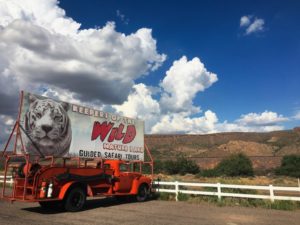
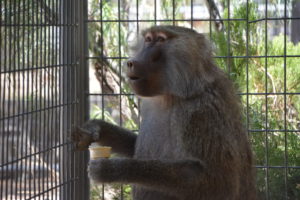
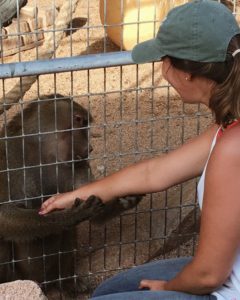
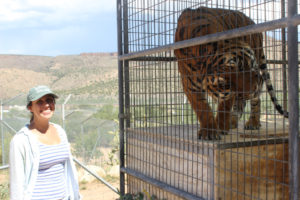
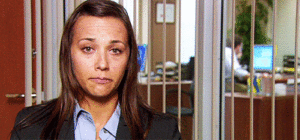
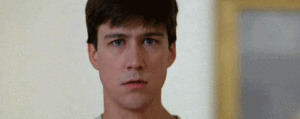 Sitting immersed in art for eight hours a week has helped me to learn how to really look at my surroundings. I’ve always been an observant person, and I’ve always been critical of the world around me. I like to know how and why thing are the way they are, and I work hard to understand the things that I see. Art isn’t an easy thing to observe. It is subjective, and different people find different meanings in it. A piece that I find inspiring and filled with movement and life, another could find oppressive and representative of human adversity to confinement.
Sitting immersed in art for eight hours a week has helped me to learn how to really look at my surroundings. I’ve always been an observant person, and I’ve always been critical of the world around me. I like to know how and why thing are the way they are, and I work hard to understand the things that I see. Art isn’t an easy thing to observe. It is subjective, and different people find different meanings in it. A piece that I find inspiring and filled with movement and life, another could find oppressive and representative of human adversity to confinement.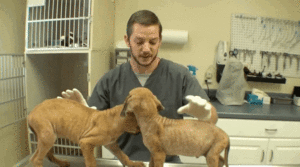 Even though my job on campus is seemingly as far as possible from what I want to do in the future, it has helped me to develop skills that I will use in my career one day. Did I expect this to happen? Absolutely not, but I am so glad that it has. I encourage you to go out and gain experience in any and all work environments. I guarantee that you will develop networking, practical, and/or observational skills that will help you grow throughout your future path. Whatever those newly refined skills are, you will be happy you have them, and you will learn more about yourself, your interests, and your future career along the way. So if even if you have a job that on paper seems like it has no relevance to your desired path, no need to worry! The lessons you learn will be relevant to your life experience, and those lessons can be applied to any career, so long as you are willing to open your eyes and find them.
Even though my job on campus is seemingly as far as possible from what I want to do in the future, it has helped me to develop skills that I will use in my career one day. Did I expect this to happen? Absolutely not, but I am so glad that it has. I encourage you to go out and gain experience in any and all work environments. I guarantee that you will develop networking, practical, and/or observational skills that will help you grow throughout your future path. Whatever those newly refined skills are, you will be happy you have them, and you will learn more about yourself, your interests, and your future career along the way. So if even if you have a job that on paper seems like it has no relevance to your desired path, no need to worry! The lessons you learn will be relevant to your life experience, and those lessons can be applied to any career, so long as you are willing to open your eyes and find them.